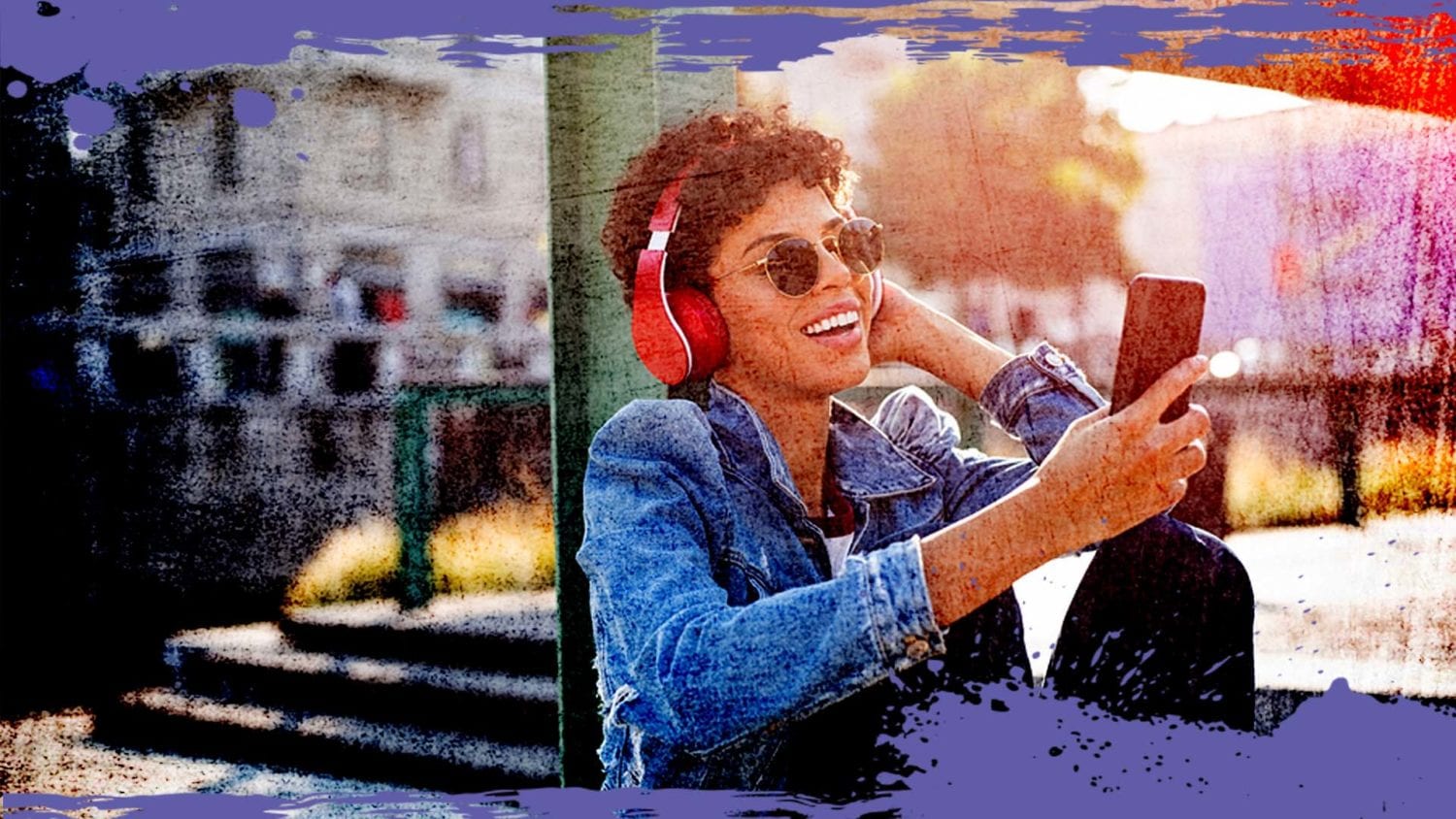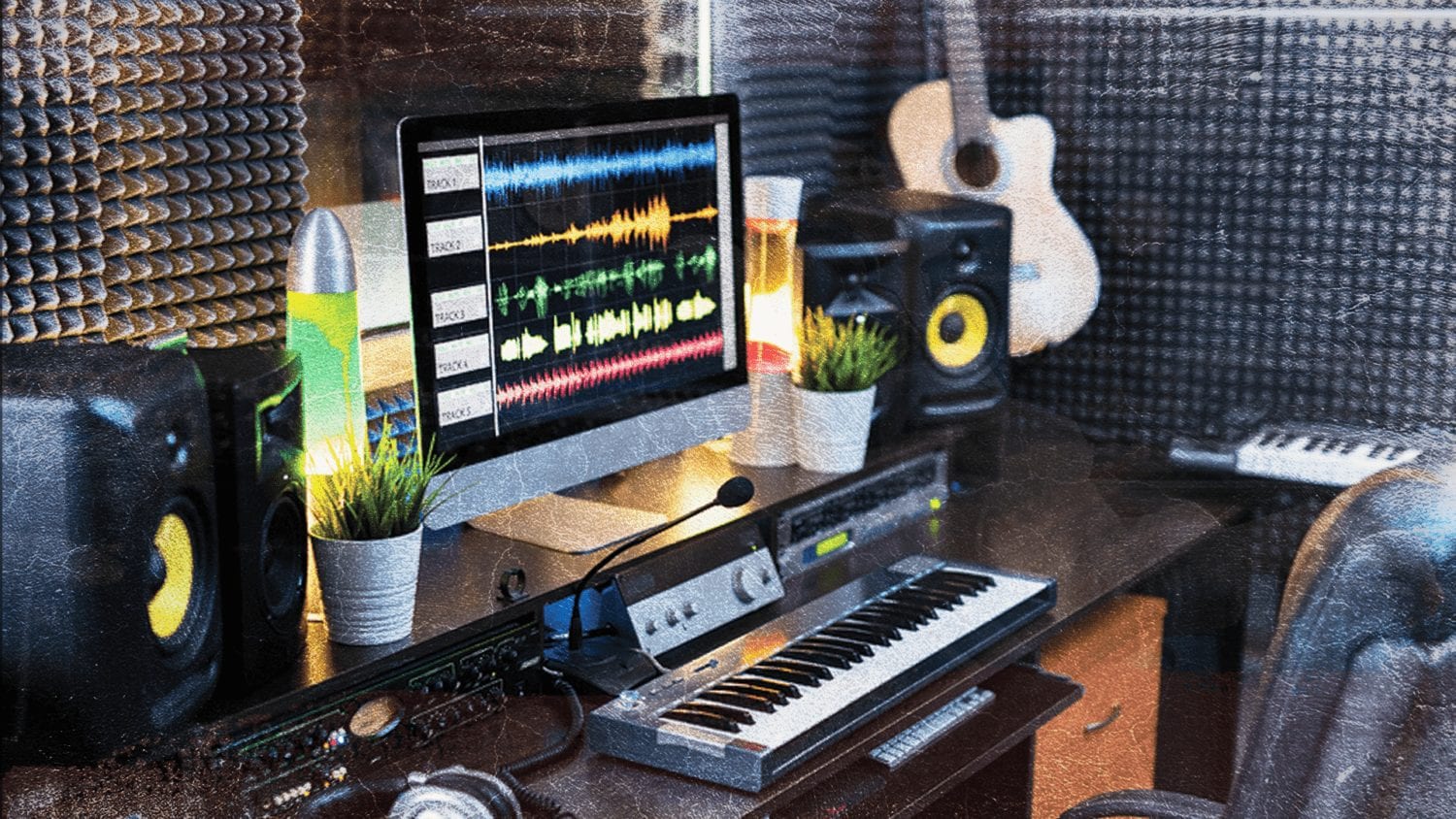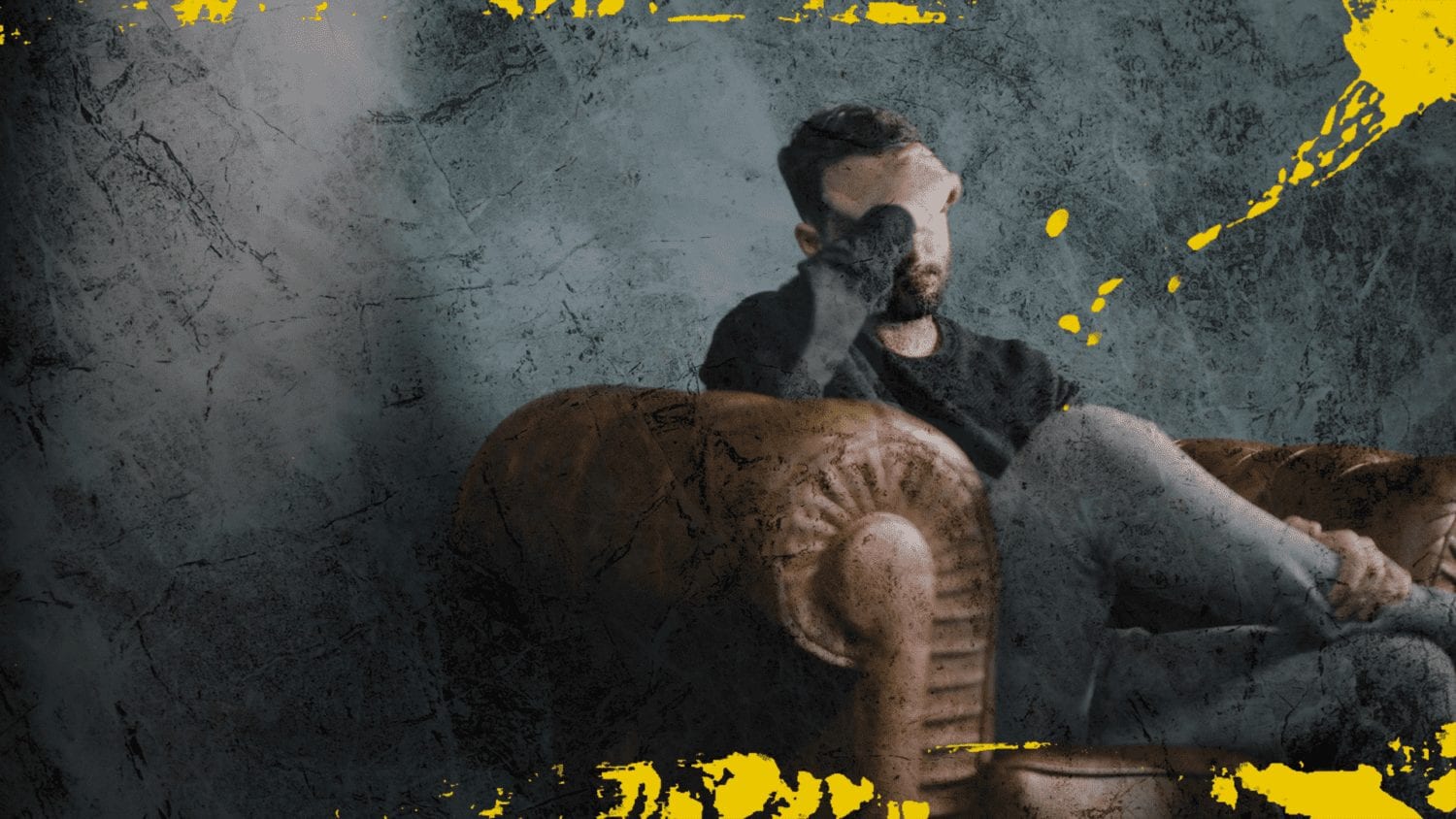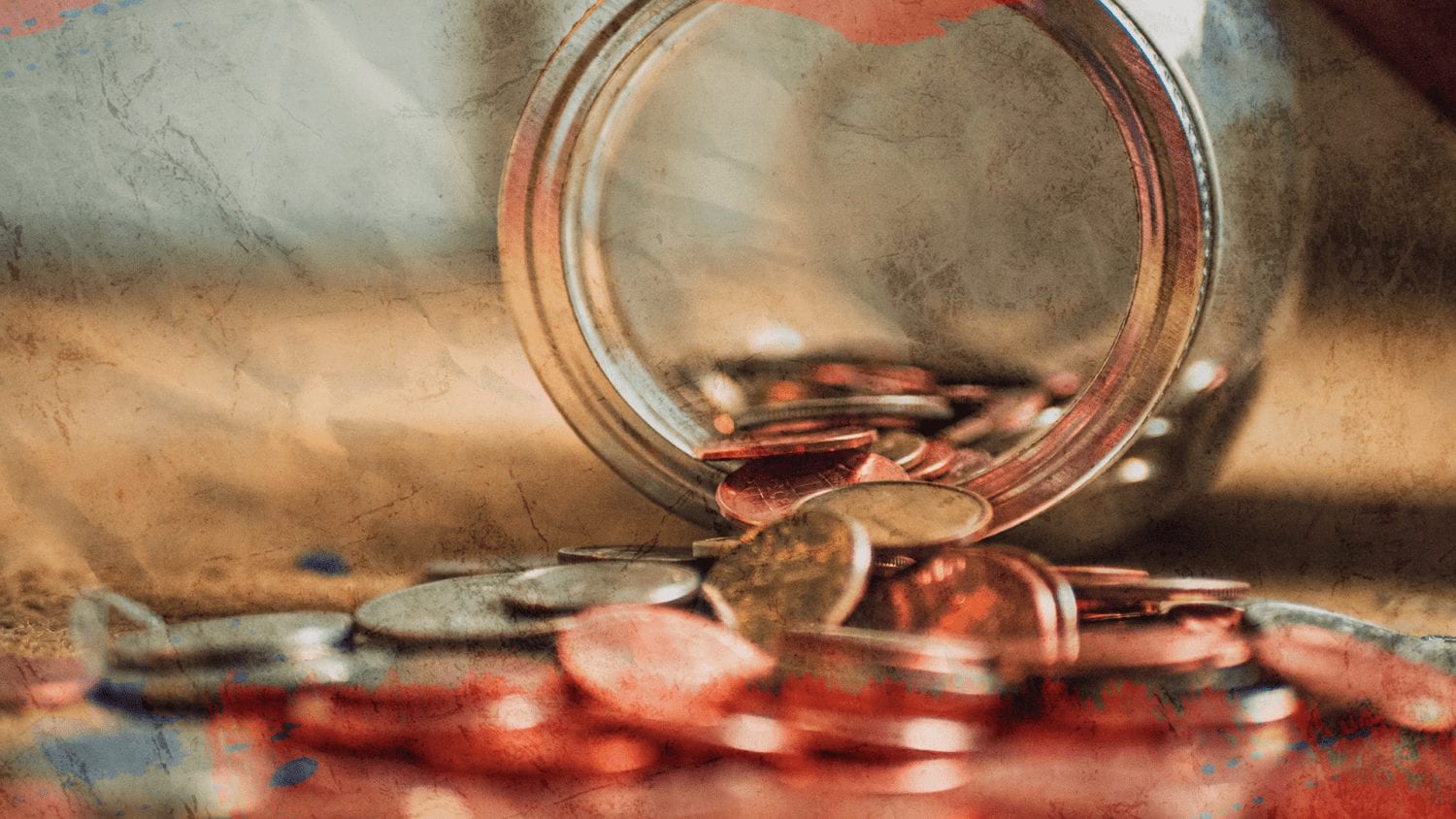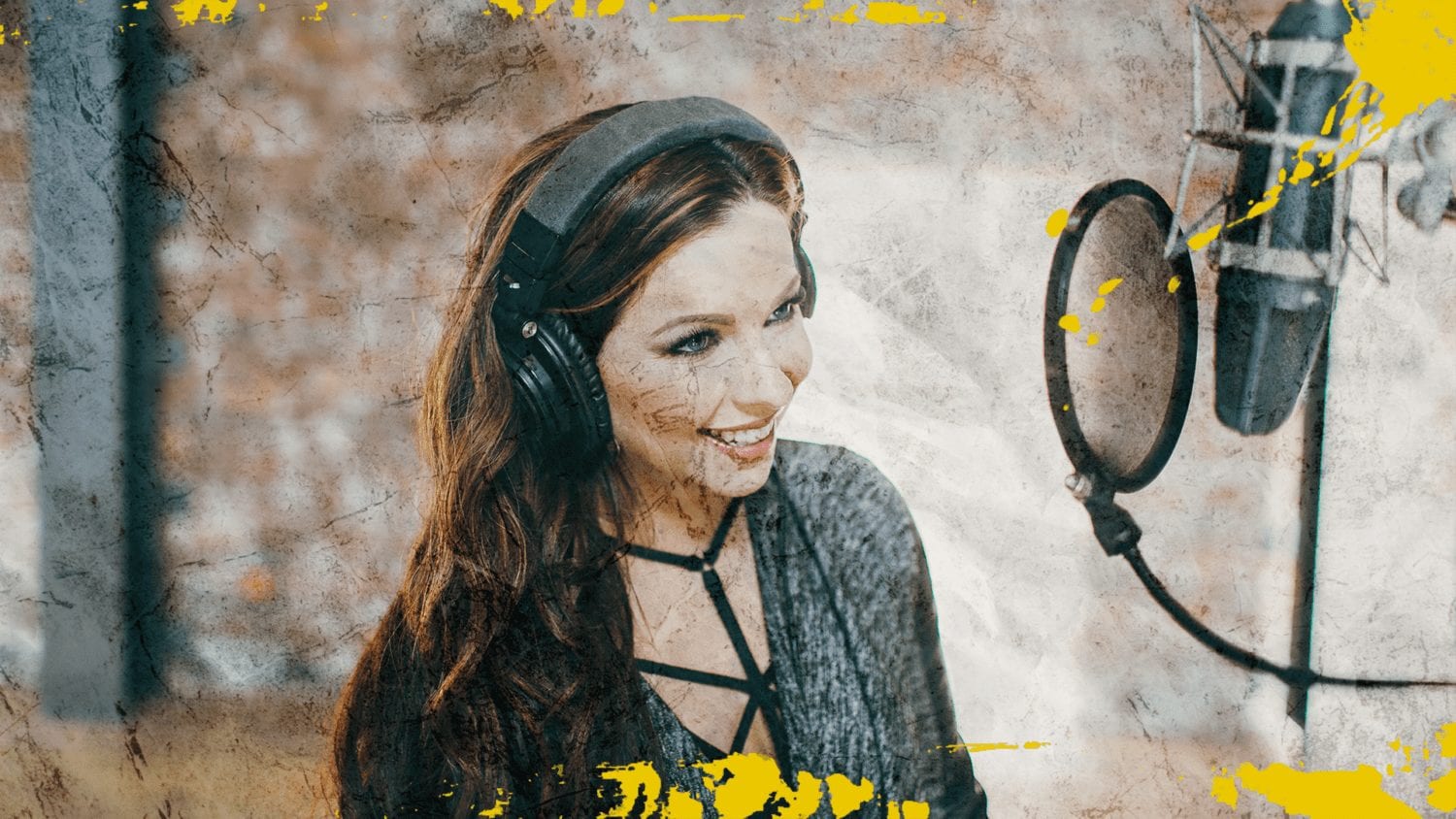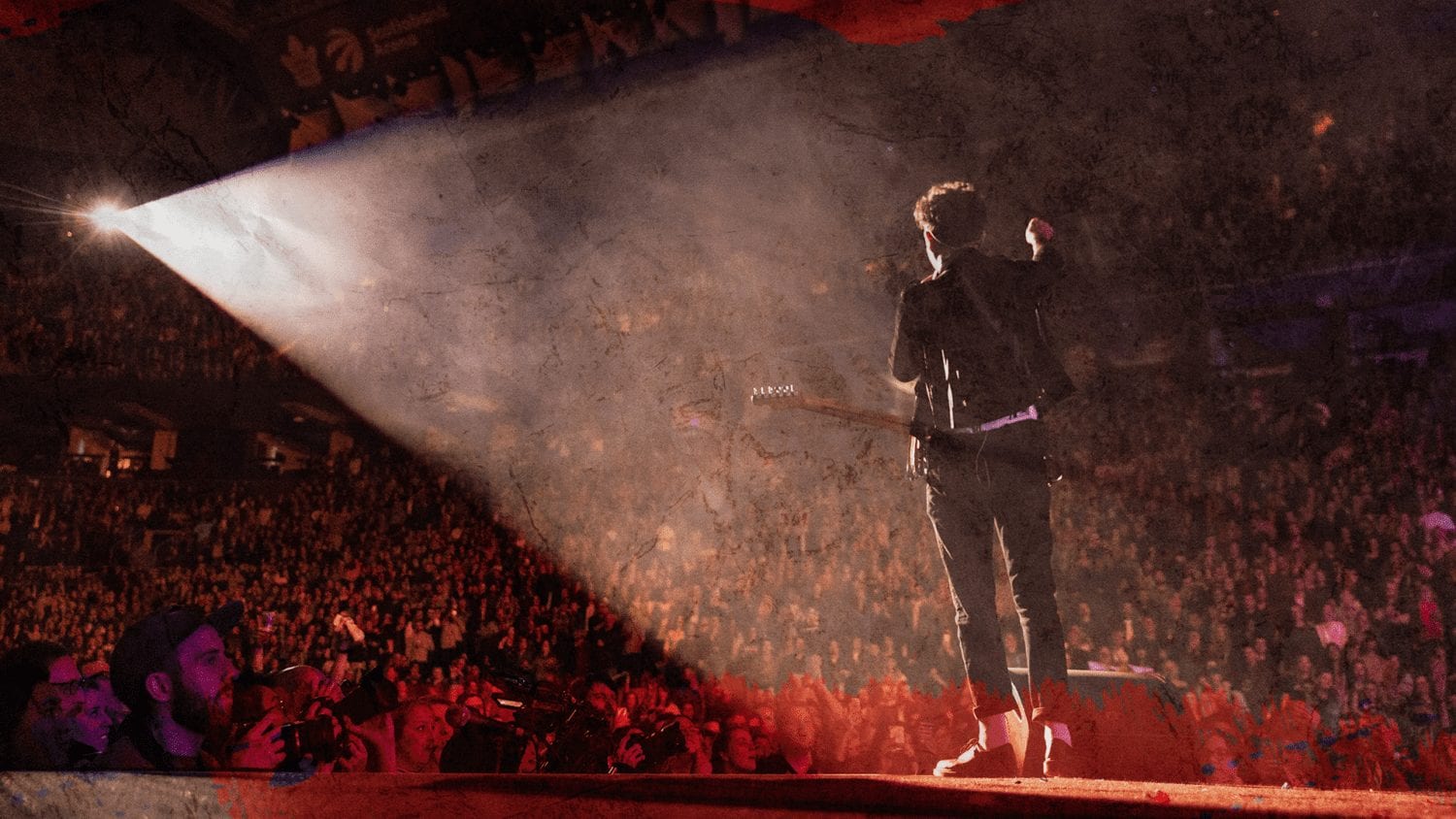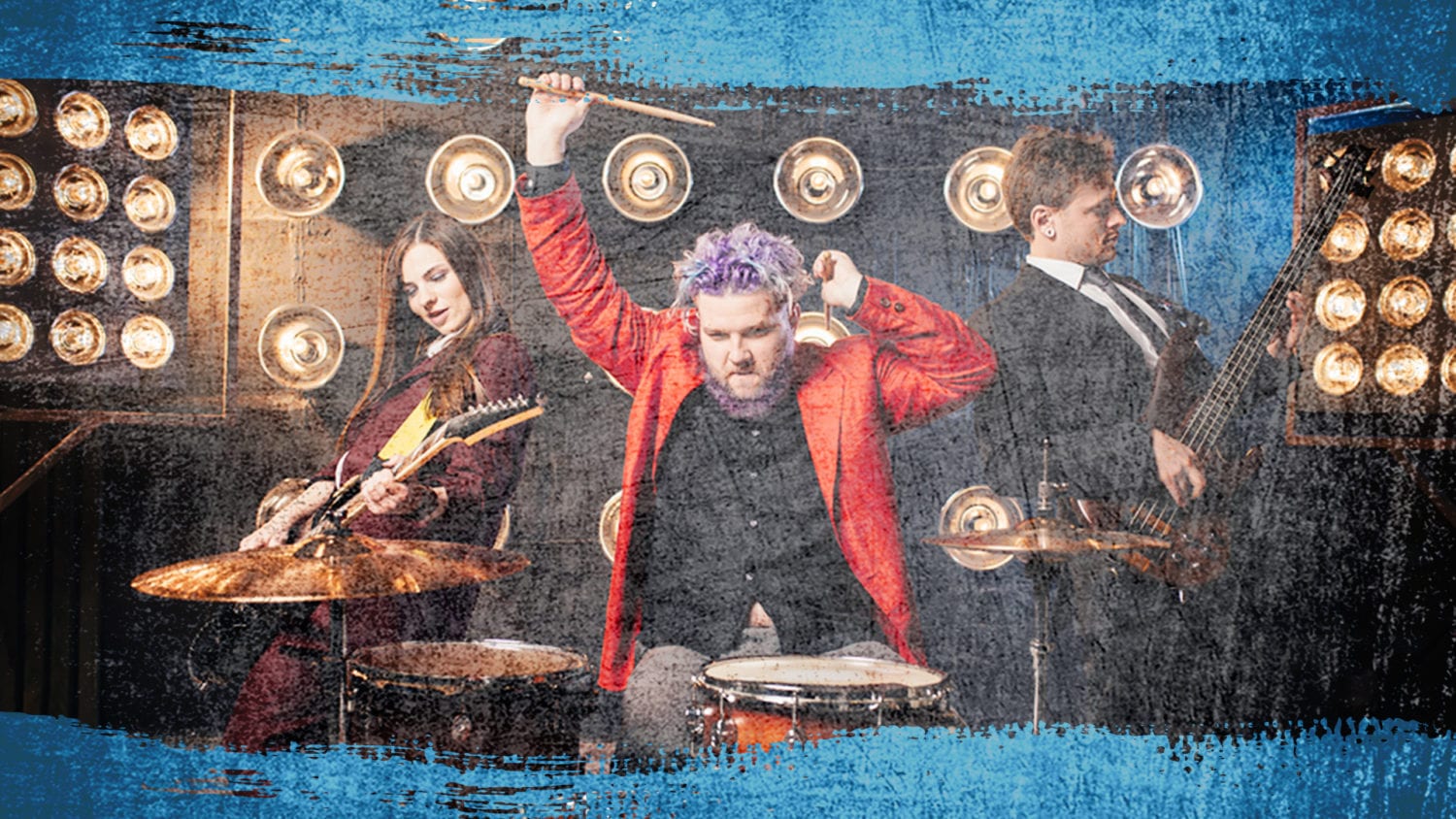
In this episode, we go behind the scenes of Leah’s push for publishing and sync licensing her music by interviewing someone who is working intimately for Leah in this process. The results have been eye-opening as our special guest, Jens Hilzensauer, pulls the veil back on what’s going on now with record labels. And because Jens is an experienced digital marketer himself, the conversation gets deep into the cutting edge of what innovative artists like Leah are doing now to achieve levels of success that are challenging the beliefs of record label executives. And because the interview went so long, we’ve decided to break it up into two parts. Believe us, you won’t want to miss this interview!
Key Points From This Episode:
- The new era of the music industry
- What European records labels thought of Leah’s success
- The reality of what A&R people see and sign to a label
- Why musicians need to take extreme ownership
- Applying marketing principles to music
- How effective are labels in their marketing?
- The power of culture in making sales
Tweetables:
“What good marketing actually is, relationship building. And I think that’s where a lot of labels, and publishing companies still fail.” — @jenshilzensauer [0:19:46]
“But this is what makes social media such a revolutionary element, and a huge key to Leah’s success because you can now go direct to market.” — @metalmotivation [0:28:57]
“You’ll really understand social media when social media disappears, and you realize you’re just talking to people.” — @metalmotivation [0:29:56]
“It’s just simple offline relationship building in an online world. And you can scale it.” — @jenshilzensauer [0:32:26]
Links Mentioned in Today’s Episode:
Jens’ Band “Planet Trompeta” — https://www.facebook.com/planetatrompeta/
Schedule a Call with SMA — http://callsma.com
Rich How (Student Spotlight) — https://www.facebook.com/rich.how
Click For Full Transcript00:21 CJ: Well, welcome once again to the Savvy Musician Show. This is CJ Ortiz. I’m the Branding and Mindset Coach here at the Savvy Musician Academy, joined once again by the lovely Leah, McHenry, her eminence, the mistress of all music marketing, Princess Leah, as I think I once called her. Good to see you, again.
00:40 Leah: I’m happy to be here. Today’s an exciting day.
00:43 CJ: Very exciting day. Can’t wait to get into this. I hope everybody’s been enjoying the podcast. Again, you can do us a solid by being sure to go to your podcast player and leave an exciting, riveting review that other people will want to read. People just like, who are working very hard in their personal music business and help them find and discover the Savvy Musician Show because it’s going to mean a lot to them and their career. That’s a great way to be a help to us. Leave us stars if they offer that, and we appreciate each and every review that you give.
Leah, before we get into what’s special about today, I just want to share again what we always do, a student spotlight. Today, one of our T.O.M. students, Rich How, he writes hashtag win, big moment, this week I have finally opened my website, mailing list, and now my Facebook page for my progressive sci-fi metal project. I’ve also made a teaser video, my first single, which is going to act as a Facebook ad.
I’m so excited. Until I got to the moment of actually making everything live, I was nervous about the point of no return. But now, fan numbers are increasing already, and it’s all the motivation I need to crack on with my debut album, due next spring.
All of this kicked off in April when Leah’s ad, after seeing it about five times everywhere, directed me to the TOM webinar and my brain was just in the perfect place to receive the information, and I suddenly saw a path. Thank you Leah. How about that?
02:18 Leah: It’s great.
02:20 CJ: Don’t you love these micro-niches that people come up with, sci-fi, heavy metal jazz, influenced country-rock?
02:28 Leah: And there really are people that want it, and they love it, and will totally nerd out over it.
02:34 CJ: Yeah. It’s funny. Well, great here because we recently talked about crowdfunding, and we’re going to talk more about the larger context of things in relation to the production of music. But it’s great to see someone, see a path. And I think that’s an important point, is he sees a path.
Because I think when we’re looking for motivation and things, sometimes all’s we really need, we don’t need a cheerleader, right now. We don’t need somebody just to tell us, “Hey, you can do it.” We need to know how, and we need to see a path. We need a light, something to direct us to know where we’re going.
That’s enough oftentimes to carry us. We’ve got all the energy and the creative power that we need. We just need to know which direction to go. And in light of that, the direction we have been steering people away from, Leah, for a while now is the traditional music industry, is record labels.
And in light of all of that, you’ve been telling me about somebody for some time now, which I’m very excited to say is going to be joining us today on this particular podcast. And why don’t you tell us a little bit about our guest?
03:41 Leah: Yeah. I am really excited to introduce you guys to somebody that I’ve been working with all year, and his name is Jens [Hillsandsour 00:03:51]. Did I get it right? Sort of, kind of. All right. Well it’s German, and he’s from Germany and he’s been working with me behind the scenes on my own music career.
As you guys know, if you’ve ever watched my webinars, you’ll know I’m a huge fan of never putting all your eggs in one basket. No investor will ever tell you to, “Yeah. Put them all in one basket. Put it all in this one place, invest it all in whatever the stock market or something.” That’s not wise.
So I have been working a little bit on, well the beginning of 2019, I decided I really wanted to pursue sync licensing after I talked to a couple of other people. We had a great guest on our podcast about it. I was like, “That is an avenue I’ve really never pursued, and I think it would be really fun.”
So in that process, I met Jens and through a series of events. And he’s been helping me with getting that process started, and subsequently getting a little bit into the publishing side of things. Because, if you get publishing, it’s easier to get sync licensing. These are things I had no idea about. It’s a whole world, I don’t know anything about.
And so that’s why I got the help, is because this isn’t something that can be easily taught. There’s no course that especially when you get into relationships, and it all comes down to relationships, when in the publishing world, it just, from what I understand is very complex.
So that’s why I got help. So I wanted to bring Jens in today, and you can correct the pronunciation on your last name to talk a little bit about behind the scenes. Because he has many talents, for one. That’s what I learned. Many different talents. He does many different things. He is a musician, himself.
He’s also got a lot of inside perspectives and insight on the industry itself and especially in the record labels, and what’s actually going on there now. There’s been such a transition. Now we’ve never come out and said, “We hate record labels.” That’s never been the case. It’s just that for 98.7% of musicians, I made that up, but 98% of musicians are never going to get a traditional record deal.
And so to put all your dreams, hopes, and everything into that one thing, thinking it’s going to be your saviour and that’s what’s going to make you rich and famous is delusional. And you don’t need to, in light of the music industry we have today. So it’s not necessary, but we never said that we hate record labels.
It just that there are so many more viable options for you. So I just want to say that from the outset going in. We’re not here to bash anybody. We’re not here to bash labels. But we are here to talk about what’s really going on, and why it is more important than ever that you take ownership of your own music career.
And I say this, as somebody who is, we’re talking with publishing companies and somebody who is going into this. So let’s dig into this a little bit. Nice to have you here, Jens. I’m so glad that you could join us today.
06:49 Jens: Hi guys. Thanks for having me.
06:52 CJ: Let me say something just really quick here. Whenever I coach any of the elite students that I work with in the Savvy Musician Academy, I’ll often ask them, “When did Leah first come across your screen?” I understand Leah’s utilizing your abilities and positioning in the industry where you are in Germany. But when did she come across your radar? How did you meet Leah for the first time?
07:18 Jens: I met Leah in little quotation marks online back in, I think it was 2013. And I worked as an intern at a game and sound design company. And at that time, I just saw a YouTube video of Leah going viral. Was it 2013? I think it was related to the Skyrim soundtrack. I don’t recall exactly when you published your rendition of the main theme of this video game.
But that was the first time I heard of your music. And I was like, “Oh, that’s interesting.” I stalked you. And I was like, “Yeah, okay. It’s a viral video, and she doesn’t even have a label.” I like it.
And I just put it somewhere in my internal archive and forgot about it. And a few years later, I was thinking about different business models or new directions, artists are going. Because there are a lot of famous rappers and hip hop artists who are really getting out ahead as completely independent from labels.
So they’re not with Indies. They are doing and running their own label, so to speak, but not in a classic way. And I was looking for artists that have the same approach to business. They run the artist’s career like a business and artists who are in the driver’s seat, but not in the hip hop or rap industry.
And then I remembered, there was this woman, this female metal singer. And then I remembered. And then I just saw her job opening, and I basically more or less wrote, “I don’t want this job, but I would love to work with you because you get it. And you get the idea of running your artistry like a business. And it’s a good thing because nobody is deciding things for you, artistically.”
09:20 Leah: Yeah.
09:20 Jens: Because I think what really attracted me to Leah, as an artist and as an entrepreneur, is she got that it makes a lot of musicians shy away from the business side of things. But what they forget is the business decisions have to be made. It’s either you, you are making them or it’s somebody else.
And I experienced firsthand what that actually means, being signed to a record label with a band a few years ago. And we were young and dumb, signed a bad contract. And yeah, our band broke up and we got dropped a few years later. So that was that.
10:00 CJ: Well there you go. I mean, right it’s a testimony to the fact that like, Leah said, “We’re not trying to bash the record labels.” But sometimes what we’re for, really is the success of the independent artists and the continuation of artists being able to earn a living from their music.
But sometimes being for something, makes you against something else. And so, it’s just a default, because up until this time, obviously, labels have controlled so much of this. And as in anything that’s institutional, it rests on its [inaudible 00:10:30] and it is going to exploit and it’s going to look after its own interests. And, the artist’s tends to be the one who’s expendable.
We don’t see many testimonies of big successes having to do with artists and record labels. It’s usually an artist, years later, I remember Metallica, for example, announcing that they … in fact, I heard James Hetfield reiterate the story. He was saying how, when he finally got the news that Metallica now had the rights to all of their music. And so he’s with his family, he has several kids and he was celebrating this. And the kids were like, “Well dad, what are you celebrating?? He goes, “We finally have all of our music.” And the kids were like, “Why would you not have your music?” They couldn’t figure out. Well, you see the record labels have owned it for this many decades, et cetera.
So yeah, now we’ve got this new era where we need something much, much different. And you know, thankfully, Leah didn’t necessarily go that route. So she was forced to, kind of, forge her own way, which has, kind of, created this now, this new template for things. How long did it take for you to really get your head around what exactly she was doing?
11:34 Jens: I think, actually not that long, because at the point of realization, I was already deep into funnel marketing, email marketing, content marketing, customer journeys, etc., online marketing and paid advertising on social media.
So I was like, “Ah, she’s just applying real-world business and e-commerce tactics to the music industry. She’s running it like a business and it makes total sense.”
12:03 Leah: Thank you. Because I get so many people like you on our ads or wherever they’re seeing me, and they think that I’m a scam artist because they don’t get it.
And can you tell us like some of the reactions you got, some of the work we’re doing together, and some of the reactions you’ve gotten from some of the executives that you’ve been meeting with? We can’t say a whole lot at this point. Can you just give us a little bit, of why we can’t say a whole lot? Yeah. There’s so much to say here.
12:30 Jens: Yeah. We are in negotiation with different companies, so, unfortunately, I’m not allowed to disclose anything. But reactions varied widely from some companies that are more on the traditional side. They work on radio. The concept of business is you get a radio hit, and then you go on tour and promote the hell out of it and make the money back.
And then there are other companies that are a little bit more modern and from the, let’s say, conservative spectrum of music business. Things I heard phrases, like, “That’s not possible. It’s a scam. How can you make money without going on tour?”
Because I think I’m allowed to say that it’s not a number I got from the labels. It’s just if you watched the numbers published by the music industry, in general, then from record sales, only the top 20 makes a profit from record sales alone.
And they were like, “She’s not in the top 20. How is she making money from music without touring?” They couldn’t grasp the concept. And then there was the other side of the spectrum, where things are a little bit more modern and tailor-made, and they are more flexible with contracts. They’re more like, “We don’t get it, but we would like to get in.”
It’s like, “Ah, we don’t exactly understand how this works, but we want a piece of it.” And that’s actually where I think, especially a major player, makes sense as a partner. If you already run a successful business and make it to a certain point, and you really want to take things up a notch or to the next league or global, I mean, of course, you are already global, if you upload your music with, let’s say, a DistroKid or CD Baby or any online digital distributor, you’re global, but in the traditional sense. And then I think a major is a good partner, and they have, of course, the money and the pathways, the infrastructure to roll it out in a big way.
But up until that point, if you’re not doing mainstream pop, I wouldn’t recommend sending your stuff to a label. Because I talk to so many label people. One A and R, I’m friends with, he said, “On my desk, I receive around 2,000 demos a year.” So, 2,000 are the demos that are left after his assistant [inaudible 00:15:07] out, a lot of stuff.
And he’s like, “I can sign around five a year, and I only sign-
15:14 Leah: Not very good odds.
15:15 Jens: Yeah. “And I only sign what I think has a target audience, has a brand that’s already clear and ready.”
15:23 Leah: Yep.
15:24 Jens: “And had some kind of small success, because I can only sign so many artists that fail. Because if I signed, let’s say five artists this year and they all fail, then it’s my job.”
15:37 Leah: Yeah. This even creates a stronger argument for why people need to take extreme ownership of their music career. Figure out your branding, figure out your niche, develop a following. Because even if you wanted a major deal, they’re not even going to look twice at you if you don’t have those things in place already.
15:54 Jens: Yeah. Correct.
15:55 Leah: So that is your goal. All the more reason, to get this off the ground yourself. Learn the principles of digital marketing, learn the principles of branding, and all the things that we talk about here. It just makes an even stronger case.
16:09 Jens: Yeah. And I think it’s totally easy for musicians if you frame it right. I mean, it’s like learning an instrument. You are not sitting down with your guitar for the first time, and you are not expecting to be the next Eddie Van Halen right out of the gate. It’s not going to happen.
And it’s the same with your brand. It needs work, it needs time, it needs dedication, and you need to have a plan and structure. I mean, you can waste a lot of time practicing in quotes, though there’s a difference between smart practice and just noodling away in your shed.
And I think it’s the same in marketing, and that’s where I think, really for me, going through your stuff, and like, I already know this, but it makes so much sense. I’m watching the courses right now. I’m going through all of Leah’s stuff just to get the whole picture of Savvy Musician Academy and it makes so much sense. It’s like, “Yeah, finally.”
17:05 Leah: It’s funny because I even have, there are people that come into our courses, they’ve taken a ton of other actual, like, business courses, marketing courses, and they weren’t able to bridge the gap to make it work for their music. There are some highly intelligent people too, that are in our elite program, people who even create courses for other people, and they weren’t able to somehow translate to their music. And I think that was actually the true problem that I was able to solve, wasn’t so much, I certainly haven’t reinvented the wheel about digital marketing.
Like there’s, in some ways a lot of what I teach, there’s nothing really new there. I think the problem I solved was applying it to music and because it’s weird, it’s art and it seems totally subjective. And how you sell this so that’s a pleasure point. It’s not really a big pain point.
And we’ve talked a lot about that, sort of thing. And I think that’s the problem that we’ve, kind of, solved on the digital marketing end, was bridging the gap for music. You can learn a lot of these same principles if you study business and e-commerce and marketing, in all these other places.
But suddenly, you go to apply it to your music and you’re like, “This feels weird. Like, can I do the same thing? Can I have the same kind of calls to action? Do I use copywriting in the same way?” Like, suddenly it just feels awkward.
And that’s how I felt. And then I learned the key to it all, is really, it’s the identity. It’s the artist identity and creating this truly authentic voice. So coming up to all the Black Friday sales and promotions, I’m going to create all my, like my album launch, the black holiday sales and promotions, the exact same way any e-commerce brand would.
However, the difference is that it’s not like a team writing it. It’s all in my voice. I’m speaking to my fans, and yeah, I do have help. I have a small team helping me orchestrate all of this, but at the end of the day it’s my voice coming through and they’re feeling like they’re hearing from me, not a corporation, not a business.
That’s one of the ways I’ve been able to do this. Can you tell us a little bit about some of the epiphany’s that you’ve had in this year? What is the state of most major labels right now, in terms of their marketing? Like what are some of the takeaways that you’ve landed in your mind?
Because we’ve had some meetings where we’re like laughing and crying at the same time, and it’s just, are you allowed to talk about those things, just generally?
19:33 Jens: Yeah. I mean, most of the bigger Indies and majors, they don’t even pixel their shop. It’s like, it doesn’t make sense and it’s so easy. What good marketing actually is, relationship building. And I think that’s where a lot of labels, publishing companies, et cetera, still fail.
They try to reach new people all the time. Let’s say you are releasing an album from artist X, she’s a pop star. And instead of just asking all the people who bought the first album, if they are interested in the second one, they just try to find new people to sell the second album to. It doesn’t make sense.
If you just made a friend, and you went out and had a few beers and a great night, who’s the first person I would call to go out with and have a few beers? Hmm. Maybe I should find some new guy. It doesn’t make any sense.
And I think that’s what good marketing actually is. It’s just following up on people and trying to view it from a relationship perspective.
20:42 Leah: Totally. Do some of these majors or even Indies, do they have email lists?
20:48 Jens: Yeah, they have email lists. But, I mean, it’s not enticing to be on that email list. And it’s called, join our newsletter. Sign up for our newsletter and we’ll let you know when we are going on tour. And I’m like, “Yeah.” I can Google it. So there’s no reason for me to join those email lists.
And, I mean, I know your email list, and it’s actually bigger than a lot of really big mainstream artist’s email list, which is crazy.
21:19 Leah: Yeah. Jens, he has access to my entire backend. So he’s seeing, like everything from the inside out.
21:26 Jens: I think it’s so empowering, even for me, as a musician, to see that there is another artist who gets it, who’s doing it on her own terms. And I mean that literally, it’s like you decide who’s in your band and who’s not. You decide what songs going to make the album or not when it’s going to be released, is it going to be vinyl or whatever? You decide what the artwork looks like.
So there’s no middle man in creative decisions, you know? And of course, does pressure attach to that?
22:05 Leah: Yeah.
22:05 Jens: So, you have to decide it yourself and you have to get it done. But at the same time, you have the freedom to decide it yourself, and I think it’s awesome.
22:13 Leah: Yeah. And I think that’s also the fun of it, too. Like to me, that’s half of the enjoyment, is being able to make those decisions. Being fully creative, like, would it even really be fun if I didn’t get to decide the artwork and I didn’t get to just completely make it my own? Like, I can’t imagine it being nearly as satisfying.
So is that really a thing? Do people really lose creative freedom when they have a big record contract?
22:38 Jens: Typically they do. And then it all comes back to where you are in your career. If you’re already having some form of success, whatever that means, it could be some form of vanity metric, let’s say YouTube plays, which we all know means nothing in the first place. I can’t pay rent from YouTube plays. But the music industry still values it. But at the same time, maybe it’s sales. Of course, that works. Spotify followers is a big incentive.
So whatever form of success you can show, then you have some form of leverage over the label. And, of course, it makes sense from the label’s perspective. Let’s say I’m the label, I have a big infrastructure to, let’s say, radio, TV shows, or traditional forms of media outlets. And somebody’s coming along, let’s say Leah is coming along with an idea of like, “I can sing.” I’m like, “Yeah, I can see that.” How am I supposed to make money with your ability to sing?
But if I already know you are a great performer, you write great songs, you have a finished product I can sell. It’s like, “Ah, yeah, okay. There’s a product I can sell and that’s where they make money.” And I still have the feeling, labels still haven’t figured out how to make new fans. I think all the artists that are big now, for like 20 years or 10-15 years, they are famous because they busted their behinds on the road.
And then after 10 or 15 years, you see something like an overnight success. But they worked this traditional model of, “Let’s say we play this club for five people, and next year they each bring two friends. And a year after that they bring two friends. And the year after that it’s like 200 people. And then another year goes by and it’s 500, blah blah blah.”
Fast forward 10 years, and then it’s like 5,000 people, and then you can really make a living on it and you can quit your shitty day job, that crust financed all of this. And you’re an overnight success, and I think your model is actually a lot smarter.
I haven’t even talked about this with you, but I just had the idea of I want to start a solo career as a singer. And I’m just going to use the principles you do because to me it sounds a lot more attractive to make a name for yourself, get fans, become friends with them. And after you build a following, you go on tour and you sell out places, and you have data on people. That makes a lot more sense than going on tour and hoping for the best for the next 10 years.
25:20 Leah: Totally. That reminds me of, I just saw in my … I have a street team, a Facebook street team and one of my sweet fans posted a video in here. It was an unboxing video he did of vinyl. And he said, “Oh, I got a comment on my video.” And this was the quote. It said, “Leah is probably the most caring, incredible and reachable music artist I’ve ever listened to. Thanks for the video. We’ll definitely buy this bundle.”
I thought that was the sweetest comment, like that I’ve seen in a really long time. That they really see me as reachable. And when you said like, “Be their friend,” it reminded me of that comment I saw. And that it really matters.
Sometimes, I’m doing this relentlessly, and I forget how much it means to people. I forget that they’re not used to this. They’re not used to people they look up to, band members, actually replying to them, caring about them.
I’ve got a customer support person who I’m like, I really, we’ve got protocols in place. It’s like, “Hey, here’s where the e-commerce stuff comes in and the customer journey comes in.” Or, it’s just like, I want them to be happy. If something gets lost in the mail, we send them another one on my dime. I don’t care. We need to make that person happy.
And so just caring about those things, giving a damn about people is revolutionary in today’s online world. So that’s another aspect. But are you telling me you’ve decided you’re going to be a solo artist? Is that what you’re saying?
26:41 Jens: Yep.
26:42 Leah: I love it. This is exciting. This is so cool. That’s really great. I mean, there’s so much we could talk about with you too, and I feel like we may end up doing a part two because you have a lot of other specialties too. You’re not just in the back end of the music industry, although you have experience there, you have personal experiences with it yourself. But yeah, there’s so much to talk about.
27:03 CJ: Let me just say this is a key point, as to why the record labels are struggling, as much as they are, to understand Leah’s situation and what she’s doing. And when we don’t understand the way something is done, the more we think it’s happening by magic or a scam or fate or something else, we ascribe these mysterious causes to something, simply because we don’t understand the way-
27:28 Jens: Yeah.
27:28 CJ: … that it works and the personal aspect. In fact, even, this month I think is a year I’ve been working with CMA. Excuse me-
27:36 Leah: SMA.
27:36 CJ: … SMA, as a, yeah, country music association. I’ve been working for a year. But, so now they’re completely metal. The country music is completely metal.
27:46 Leah: Yeah.
27:46 CJ: But working for a year, especially as a coach, and watching these musicians trying to absorb something that’s very principle-based, obviously has a lot to do with the quote-unquote technology and all of that. And they’re scared to death that they’re going to miss something.
They’re scared to death, that it comes down to a particular piece of software or something. There has to be some magic element to it. Forgetting the fact that no, this is a very, very personal social thing. So I’ll often tell them, “You have to keep in mind that although online marketing is a key element here, online marketing was happening long before social media because e-commerce was there.”
Amazon, obviously, had started in the ’90s, so people were spending money online and therefore businesses were marketing long before social media came around. But social media is the revolutionary element here because you’re no longer relying upon people searching on Google to find you. Right?
Especially, when you now have these creative niches that people have and these niche artists, with all the sci-fi, heavy metal, country music thing. Nobody’s going to go online looking for you. But this is what makes social media such a revolutionary element, and a huge key to Leah’s success because you can now go direct to market.
You’re not relying upon people finding you. You’re finding them, by understanding who you are as an artist, your genre, your niche, the type of people who would be best for you and then creating an effective brand for that community, for the culture that surrounds your music.
And then you now have to come out from behind the microphone, to be not just the musician, but now also the messenger of the big idea that’s behind your music. We have a lot of, for example, artists in our elite program that are very mission-driven.
29:38 Leah: They have a message or something.
29:38 CJ: Their lyrics are, you know, they have, yeah, there’s a clear message about what they’re doing, could be the environment, could be something of faith or what have you. But all of those things require so much more in order to market in these days.
But as I just taught a group out in Detroit here, at a marketing seminar, and I told them, I said, “You’ll really understand social media when social media disappears, and you realize you’re just talking to people.”
It does go back, Jens, to what you said about, you know, “You have a great night with a friend that you met, and you had several beers and you’re going to want to do that again. But are you going to go find somebody else?” No, you’re going to continue that relationship. It costs so much more time, energy, and money to find somebody new, when you can keep selling, so to speak, to that same person over and over again.
There is nothing magical, about this at all.
30:27 Jens: Yeah.
30:27 CJ: And I love the fact, Jens, that here you are in Germany and, Leah had mentioned to me beforehand, “Okay. Now he has an accent. He has a heavy accent.” So I’m thinking, I’m sitting here going, “He knows all of our jargon and cliches.” So you were thoroughly Americanized, as far as that goes.
But are you seeing that aspect of it, and how empowering is that to you, just the fact that you have this ability now to control what’s going on, but go direct to market and create these actual tangible, real relationships, where like Leah described, somebody is watching an unpacking of a fan with the album and saying, coming to that conclusion, “What a caring artist.”
31:10 Jens: Yeah, I mean it’s totally mind-blowing if you just think back a few years. I mean, I’m not that old, I’m 30 right? So it all began with the digitalization of recording becoming cheaper and cheaper. And then the social media thing happens. And the first thing I realized was like, “Okay. Why do I need social media as an artist, if I can fill a venue if I have reached directly? I can ask people to go to my shows. If people go to my shows, I get booked for the next festival.”
31:42 Jens: Then I had the realization of, “Oh, you can actually retarget people because you have a pixel, and that’s what most labels unfortunately still don’t get. You have a pixel and you can retarget people, so you can talk to people again that are already interested in your stuff.”
31:59 Jens: Let’s say I met CJ at a bar and we’re having a great time, a few big laughs, a few beers, and we forget to exchange numbers. But I have a pixel installed in that bar. I can show CJ a Facebook ad saying, “Hey, I had a great time. Let’s hang out again.” I mean, isn’t that great?
32:21 CJ: Yeah. “And the next round is on me,” you’d say,
32:23 Jens: Yeah, and the next round is on me. And I mean, it’s just simple offline relationship building in an online world. And you can scale it. That’s just mind-blowing. And you don’t need a middleman, and you can create your own artist business on your own terms because have no creative middleman in between you and your success.
It’s so crazy, empowering. I mean, of course, I had these talks about Leah. She’s not going on tour. And what’s the projection of her business? In my mind, it’s like, “Leah has five kids, homeschool, STEM, and runs two businesses. She’s tougher than all of you.” And what I just realized a few days ago is, of course, Leah’s approach works. We see it. It’s like-
33:09 Leah: It works for millions of other businesses. So, I’m pretty sure it works.
33:12 Jens: Yeah. And if you look at it from a perspective of how well known is a brand, to how much revenue is the brand making, and you compare, let’s say one company, Starbucks to the worldwide record industry, you learn that Starbucks is making more than five times the revenue the whole worldwide record business is making.
And I think that really puts it into perspective how small the record business actually is, compared to brand recognition. I mean, let’s only take Taylor Swift, Metallica, ACDC, how many people in the world know these brands? And yet these brands and bands and artists and real people make so little money compared to the actual brand awareness and reach. It’s insane. So there’s something fundamentally wrong with the business model.
34:08 Leah: Yeah. Well, and look at how many of these huge artists start completely side e-commerce businesses. Like Rihanna. I heard a statistic this morning like Rihanna has made more from her e-commerce business, her cosmetics line than from her music. So, and what does she have? Does she have a clothing line and she has a fragrance line and makeup line? Like, that should tell you something too. Well, I get a whole bunch of conclusions. What do you conclude from something like that?
34:42 Jens: Yeah, of course, you see that her contract is actually a bad one.
34:48 Leah: Yes.
34:49 Jens: So I mean, she really has a lot of radio airplay and all the traditional media visibility and reach, and she’s still not making a lot of money from her record sales.
And, of course, it’s because of the different deals people make and made in the past. And at the same time, you see the pull of e-commerce. And for me as a musician, I mean, after my publishing deal fell through, I thought it’s a good idea to go to college and learn about the music business.
And then I had this crazy idea of, “You go to college and then you know how it works.” That’s another story for another podcast episode. But what I learned over the last few years is people don’t listen to music, to listen to the music. And they don’t go to concerts or live shows, to listen to music.
It’s about status and about belonging to a specific group and to, let’s say you’re a little cult in a way. And at the same time, you go to concerts just to go on an emotional journey.
36:02 Leah: Yeah.
36:03 Jens: You can sum this up by saying it’s about culture. And your music is just one part of it. It’s so much more. It’s you as a person. And once I realized that, it’s like, “Oh yeah, of course it’s so much bigger.” It’s the attitude, the values, this artists portrays. It’s so much more.
I mean, it’s not putting the music down. It’s just, it’s so much bigger than only the music. And once you get this, it’s like, “Yeah, of course it makes sense for Rihanna to not only do music. She definitely should sell fragrances because she’s a personal brand.”

